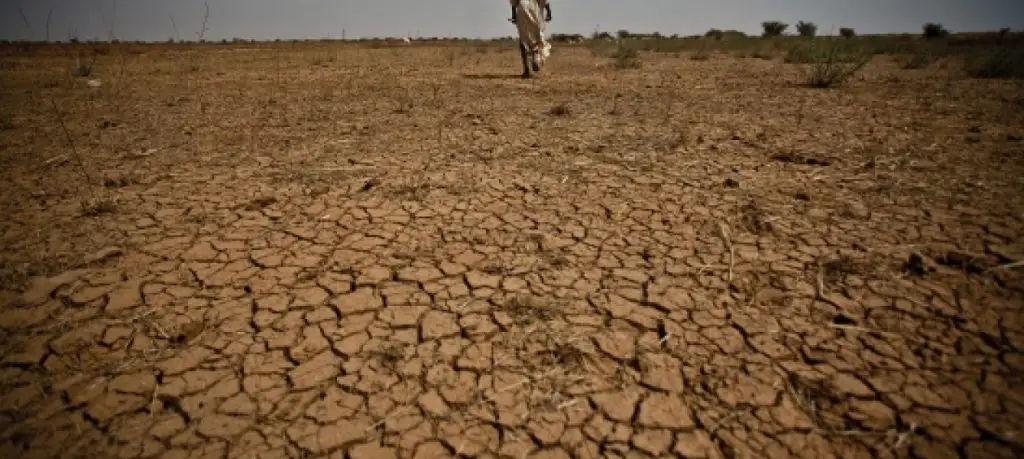Climate campaigners are pressing for more, a tenfold increase in climate financing commitments to Africa from the West’s 2009 US$100 billion number to US$1.3 trillion, amid broken promises of funds for a region that suffers the most from climate change but contributes the least to it.
These demands were expressed at a recent pre-COP27 media briefing in Kigali, Rwanda.
- Climate campaigners are pressing for more, a tenfold increase in climate financing commitments to Africa from the west’s 2009 US$100 billion number to US$1.3 trillion.
- The California-based climate policy group Climate Policy Initiative calculated that only about US$30 billion in annual climate funding is allocated to Africa.
- Although fewer than 4% of global carbon emissions come from Africa, the continent has experienced some of the harshest impacts of climate change, with increases in temperature faster than usual.
Droughts and floods
One of the most severe droughts in the Horn of Africa region has only been brought on by climate change this year. In April, flooding in South Africa claimed at least 453 lives, while deadly tropical storms in Madagascar and Mozambique claimed hundreds of lives.
On August 3, flash floods in the town of Mbale claimed the lives of at least 24 Ugandans, displacing 5,600 people and destroying more than 5,000 acres of crops. According to the 2019 Save the Children report, floods, cyclones, and landslides in Somalia, Mozambique, Sudan, Kenya and Malawi resulted in nearly 1,200 fatalities.
Faustine Munyazikwiye, deputy head of the Rwanda Environmental Management Agency, urged full participation from all African countries at the COP27 climate summit in Egypt in November and emphasised the necessity for an Afrocentric strategy to boost the continent’s desire for additional funding.
“The promised US$100 billion was only a figure. It didn’t satisfy the most vulnerable developing countries’ climatic needs. Africa has never received enough compensation for losses and harm that it didn’t inflict,” Munyazikwiye reminded the audience.
Last month, the California-based climate policy group Climate Policy Initiative calculated that only about US$30 billion in annual climate funding is allocated to Africa.
Additionally, it projects that by 2030, financing Africa’s demands for mitigation would cost US$1.6 trillion, in addition to an extra US$580 billion for adaptation and US$242 billion for “dual benefit” measures. This is less than the US$1.3 trillion the continent is requesting.
Per capita CO2 emissions from fossil fuels for all African countries against the global average (in tonnes)
Severe Negative effects
Although fewer than 4% of global carbon emissions come from Africa, the continent has experienced some of the harshest impacts of climate change, with increases in temperature faster than usual.
According to a 2019 World Meteorological Organization assessment, Africa’s GDP could decrease by up to 12.12% if temperatures rise by 4°C beyond pre-industrial levels.
According to the World Health Organization, between 2030 and 2050, climate change will kill an additional 250,000 Africans annually.
According to a 2021 report (pdf) by the Food and Agriculture Organization (FAO), climate change has caused a 45.6% increase in the number of undernourished individuals in Africa since 2012. In 2020, there were 281.6 million hungry individuals on the continent, 46.3 million greater than in 2019.
The argument in favour of carbon credits is a sky trap for Africa
The continent comes in last in terms of funding and green development mechanisms in the global carbon market, which increased by 164% to a record US$851 billion last year.
The largest market for trading carbon credits is in Africa, but what are the responsibilities of the sellers and buyers? Munyazikwiye questioned.
According to Mohamed Adow, the founder of the climate think tank Power Shift Africa, “Rich countries do not want to decarbonize their economies. It’s a sky trap. Rather than cutting emissions, they pay poor countries to run projects that lower emissions and take credit for that. Africa doesn’t have emissions to cut, but emissions to avoid.”
Adow urged all African leaders to take the helm of climate talks in their nations because “you need to choose the appropriate climate path if you’re the least developed and confront the highest climate vulnerabilities.”
Mohamed criticised African nations that want to pursue fossil fuels, including Namibia, Uganda, and the DRC, saying that such actions “inspire climate change perpetrators.” In February, Namibia found 11 billion barrels of oil; Uganda wants to mine its 6.5 billion barrels; and the DRC wants to exploit its 5 billion barrels, putting more than 1 million people at risk of pollution and disease.
